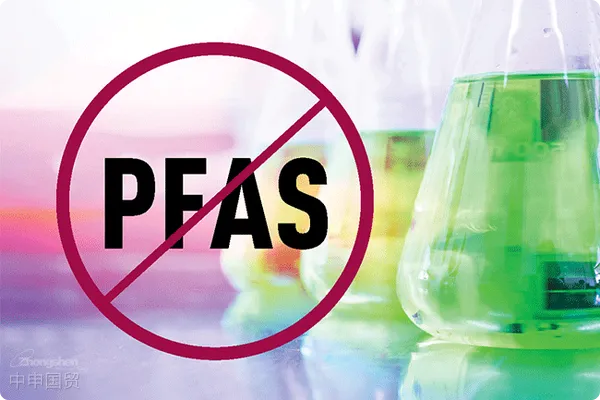- Shanghai Zhongshen International Trade Co., Ltd. - Two decades of trade agency expertise.
- Service Hotline: 139 1787 2118
As concerns about the potential health impacts of per- and polyfluoroalkyl substances (PFAS) grow, states in the United States are introducing relevant policies to restrict the use of these chemicals in food contact materials. The following is an overview of the latest policy developments in various states.

I. New regulations in Maine
Following the practice of Washington state, Maine has proposed a ban that explicitly prohibits the intentional addition of nine types of PFAS in fibrous food contact items. This policy aims to reduce the potential risks of these chemicals to consumers health. The states ban applies to large food or beverage companies with annual sales exceeding 1 billion US dollars. The public comment period for this regulation will be open until November 30, 2023.
II. Measures in Minnesota
Minnesota is actively soliciting public feedback on PFAS policies and plans to establish a data collection framework to better monitor products with intentional addition of PFAS. The states Pollution Control Agency expects to obtain detailed information from manufacturers by January 1, 2026, and is formulating a corresponding charging structure. The target for finalizing the rules is set before 2024, and the deadline for relevant consultations is November 28, 2023.
III. Legislative changes in California
California has issued warnings to companies that sell food packaging containing PFAS or fail to disclose certain chemicals in cookware online through Assembly Bill 1200. Starting from 2023, this bill will come into effect, prohibiting the intentional addition of PFAS in fibrous food packaging and requiring the disclosure of the chemical composition of cookware. By 2024, all products will need to be labeled with ingredient labels, and chemical-free claims on cookware packaging will also be restricted.
IV. Veto of the bill in Nevada
Nevada encountered a policy setback in June 2023 when the governor vetoed a bill aimed at banning PFAS-containing products and requiring explicit labeling of cookware. This decision was based on concerns about imposing premature regulatory burdens and anticipation of federal guidance. Although blocked, the state senator who proposed the bill has planned to push the issue again next year.
The policy updates of state governments have a direct impact on food contact material manufacturers and also provide a higher level of protection for consumers. As policies continue to evolve, manufacturers and relevant stakeholders need to closely monitor the legislative dynamics of various states to ensure compliance and prepare for potential market changes.
Related Recommendations
? 2025. All Rights Reserved. 滬ICP備2023007705號-2  PSB Record: Shanghai No.31011502009912
PSB Record: Shanghai No.31011502009912









